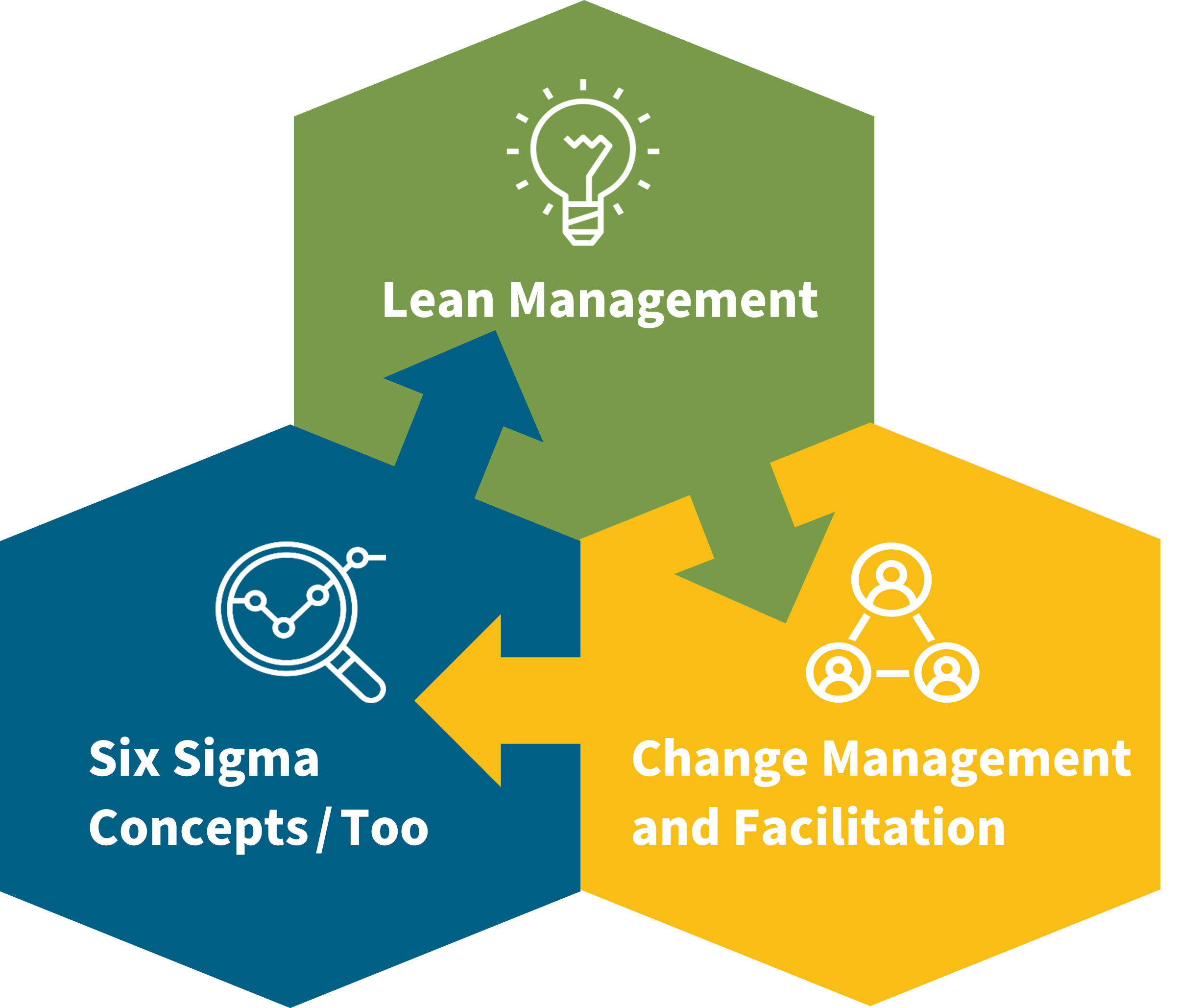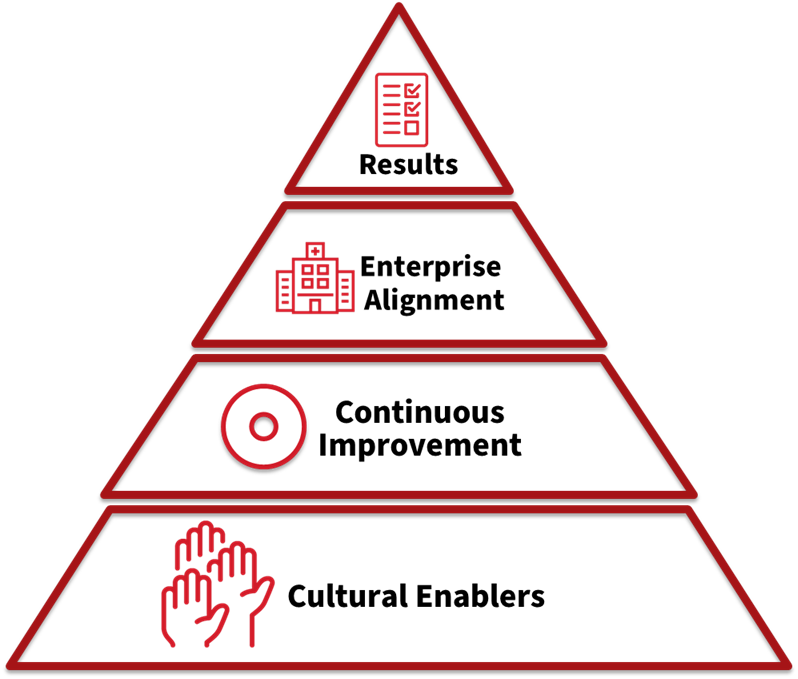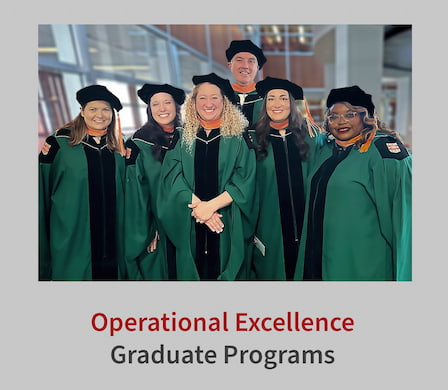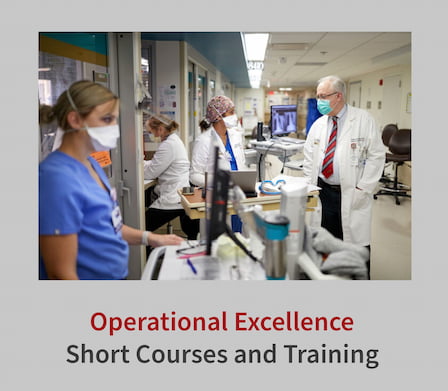It's easy to start your application.
Health Care Operational Excellence
Are you currently working in health care? Are you ready to impact your work environment and position yourself for the next step in your career? Now more than ever, health care needs a workforce that is equipped with Lean, Six Sigma, project management and facilitation skills. Position yourself to lead, make change and have a greater positive impact on the delivery of care, regardless of your role or work location.

Created by OpEx clinical experts, designed for those who lead
Washington University's Professional Education for Health Care Operational Excellence comes in multiple modalities with a unique stackable learning pathway, from non-credit skill building training and certificates for basic OpEx skills, to more in-depth graduate-level programs empowering leaders who can coach, motivate and inspire.
Courses are designed with input from employers, thought leaders and practitioners. Learn from leading health care professionals, experts and executives.
What is Health Care Operational Excellence?
Health Care Operational Excellence uses leadership, project management and facilitation skills to deploy Lean / Six Sigma tools to help improve outcomes, reduce cost and engage the workforce in continuous improvement, with the focus always on improving the customer experience. More simply interpreted as “execution excellence,” it’s when each and every employee can see the flow of value to the customer and fix that flow when it breaks down.

Learn more as Leroy Love, director and professor of practice for the Master of Health Care Operational Excellence program shares his thoughts about the current state of health care and the benefits and outcomes from WashU's MHCOE program.

Forming the foundation for Operational Excellence
It begins with a culture shift where all leaders and employees are dedicated to meeting their mission and strategic goals through collaboration, open communication, and a desire to produce exceptional outcomes
Cultural Enablers: open communicators promoting a culture of safety, transparency and transformational leadership with respect for every individual
Continuous Improvement: a focus on the process by employing Lean and Six Sigma tools to drive quality and value. An embrace scientific thinking while seeking perfection
Enterprise Alignment: thinking systematically to creating consistency of purpose, tying mission, strategy and goals together for all levels of the organization. Driven by the voice of the customer with input from frontline team members
Learn more about the array of OpEx learning options from Washington University
- Delivered in multiple modalities, from skill building training to more in-depth graduate graduate offerings tailored to meet the specific needs of health care professionals today.
- Education for all levels across the lifelong learning continuum, with credentialed programs that build pathways to additional higher education programs.
- Modular, online degree and non-degree learning to advance skills and expertise, designed especially for those whose schedules requires more flexibility.
- Short-course training may be applied toward the Master of Health Care Operational Excellence degree for those who want to continue their learning journey
Ready to learn more about the Master of Health Care Op Ex Program?
The online Master of Health Care Operational Excellence (MHCOE) from Washington University in St. Louis can help you advance with the knowledge, leadership and skills needed to establish, implement and oversee important process analysis and continuous improvement initiatives in the growing field of health care.
Engineering Graduate Financial Aid
314-935-1155
mckelveygradfinancialaid@wustl.edu
Engineering Graduate Admissions
314-935-5830
engineeringgradadmissions@wustl.edu
Now accepting applications for Summer and Fall 2025. The Sever Institute is excited to offer the Master of Operational Excellence ONLINE. This 10-course, part-time fully online program is available to candidates with 3 or more years of professional health care experience.



